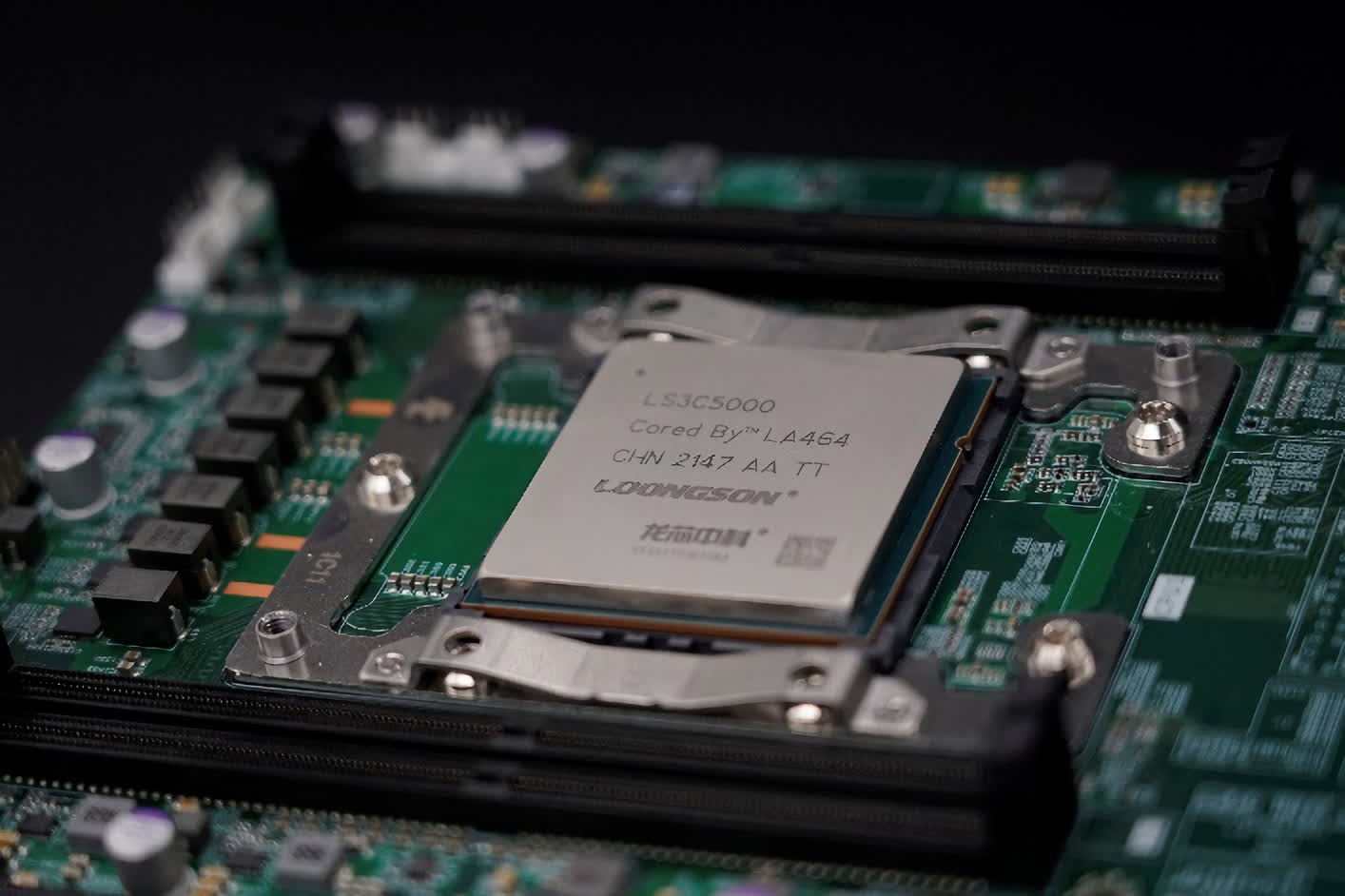The big picture: Loongson is supposedly just three years behind its Western competitors when it comes to the IPC performance of its CPUs. While impressive, their use of outdated process nodes means they can't keep up with the clock rates of AMD and Intel chips, making real-world performance lag even further behind.

Last week, Chinese CPU developer Loongson started shipping its 3C5000L server processor. It features 16 cores, a clock rate of up to 2.2 GHz, and utilizes a 12 nm process node.
The company claims the CPU can deliver up to 560 GFLOPS of compute performance at 130W without providing any other benchmark numbers. Loongson's 5000-series processors use its proprietary LoongArch ISA, although they're also compatible with MIPS to maintain support for applications written for its previous-generation processors.

The chipmaker did publish some performance numbers for its 3A5000 CPU running at 2.5 GHz, claiming it delivers similar single-threaded performance in UnixBench to an Intel 10th-gen Core i7 10700. However, multi-threaded performance is significantly lower, as the 3A5000 only features four cores.
Loongson plans to use a new LA664 architecture for its upcoming 6000-series processors to increase efficiency, supposedly putting their IPC performance on par with AMD's Zen 3 architecture. The company expects to launch its 16-core 3C6000 and 32-core 3D6000 in 2023 or 2024.

While that does sound impressive, Loongson's chips will probably still be limited to the sub-3 GHz range, meaning real-world performance will be significantly lower.
The company is also planning to introduce a 64-core variant with its 7000-series chips. These will keep using the LA664 architecture, although they will probably switch to a newer process node, increasing their efficiency further.
It'll be interesting to see if Russia starts using Loongson's CPUs more in its infrastructure. The country might have no choice considering recent sanctions, at least until it develops its domestic chip production capabilities more.
https://www.techspot.com/news/94921-chinese-chipmaker-claims-upcoming-cpus-feature-similar-ipc.html